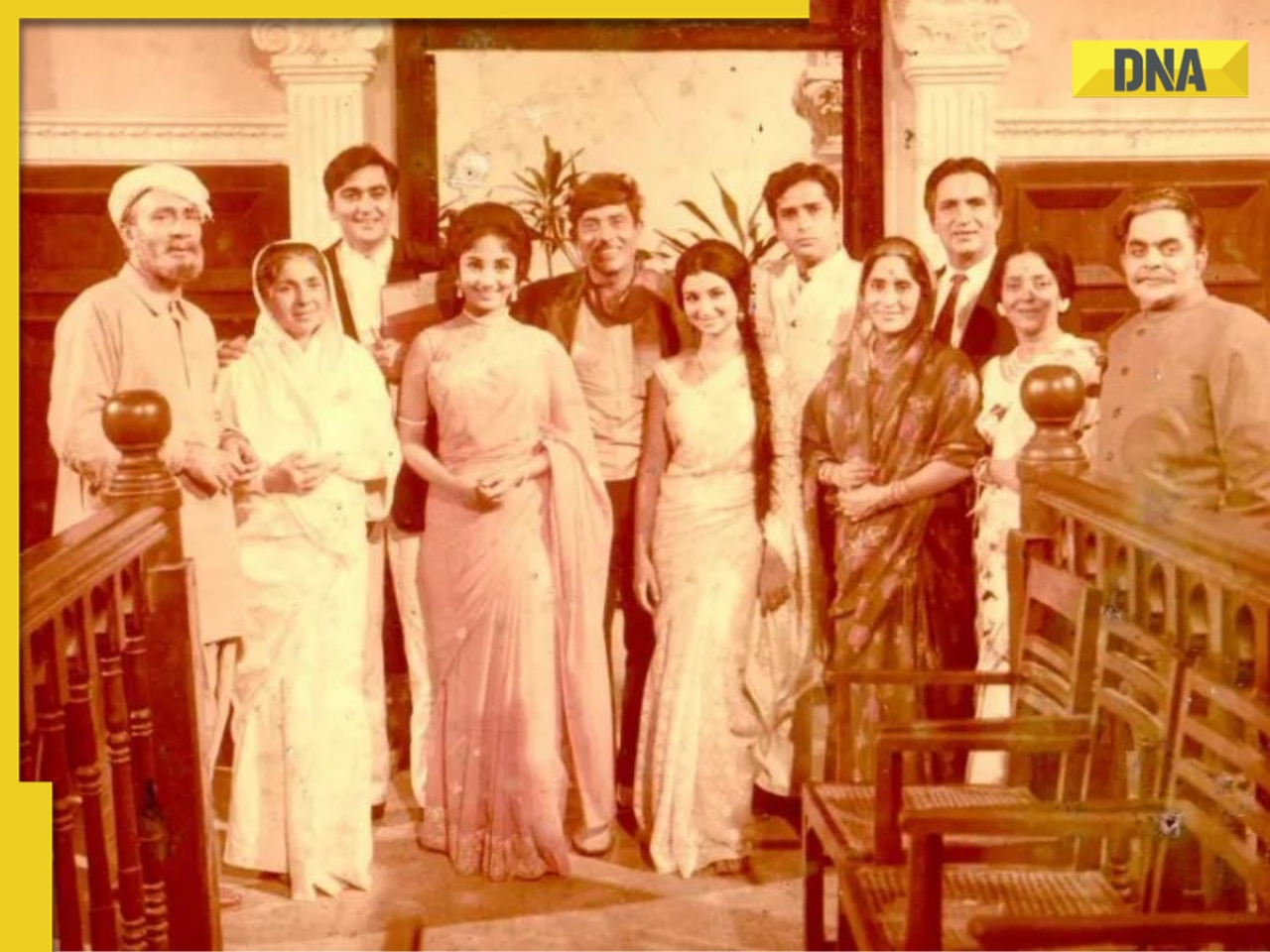A survey shows that young people aspire to a good marriage - so why does the divorce rate continue to rise, asks Judith Woods
A well-dressed woman in her sixties stands in a corridor, weeping behind her designer glasses. By her side is another, younger woman, introspective in her mute misery, eyes cast down. A third woman, office-smart with a neat bob, bearing a name badge with the title Personal Support Unit, is hovering on the fringes.
She ushers the pair into Court Nine, with its long desks and ergonomically designed chairs. They are the only occupants. A court official reads out a list of decree absolutes, ending a dozen or so marriages. As it's a formality, there is no need for couples - ex-couples - to turn up.
The two women look as if they'd rather be anywhere else. When the judge addresses the younger one, it transpires that she has come to say she is unable to pay her share of the court costs - an administrative fee of £340 - because she has mental health issues.
The judge briskly orders the absent husband to pay costs, and with that the women are dismissed. Both are now crying.
When high-profile cases hit the high court and the headlines, we are unabashedly agog at the sight of the moneyed and the privileged slugging it out over six-figure monthly maintenance and who gets the chalet in Gstaad. It's not dignified, but it's gripping, and the patina of glamour makes it difficult to attribute genuine feelings to the warring couples.
Today, at the Principal Registry of the Family Division in Holborn, central London, there is no sense of high-octane drama, no whiff of glitz. Quite the reverse: an air of hushed gloom hangs over the windowless corridors, officious solicitors purposefully trundling their wheeled suitcases crammed with case notes, their dazed clients traipsing in their wake.
It is here - and in similar buildings the length of the land - that pensions are carved up, houses allocated and, at the extreme end, legal arguments conducted over furniture and family pets. Assets are divided, children's fates decided. And as their family splits asunder, 3.8 million children find themselves victims of what Family Division Judge Sir Paul Coleridge calls "one of the most destructive scourges of our time".
A new survey shows - contrary, perhaps, to expectation - that young people regard marriage and the raising of a family to be more worthwhile than a high-flying career or the acquisition of material wealth. Indeed, the research, carried out by care home charity Friends of the Elderly, revealed that a lasting marriage was the leading aspiration among every age group, including 18-24 year-olds.
Earlier this month, when Coleridge established the Marriage Foundation, an independent charity dedicated to championing marriage as the "gold standard for relationships", Left-wing commentators were highly critical. In return for raising his head above the politically correct parapet to reject the canard that when it comes to bringing up children, cohabitation is the equal of a legal union, bar the paperwork, he was branded reactionary.
But now it would appear that he was reflecting the mood of the nation. While no one disputes that cohabiting parents can be as loving and supportive as married couples, the incontrovertible fact is that their relationships are less stable - they are almost three times more likely to break up by the time their children are seven. And the long-term consequences of divorce and relationship breakdown on children are clear: they are more likely to play truant, take drugs, abuse alcohol, commit crime or self-harm.
Coleridge, who presided over the bitterly fought divorce of Sir Paul and Heather McCartney, blames 50 years of "relationship free-for-all" for the spread of "divorce on demand". The resulting fallout - or "broken home", to use the now unfashionable phrase - damages not just the children, but wider society. "The Marriage Foundation is not going to be a cosy club for the smug and self-satisfied of Middle England," Sir Paul told an audience at London's Middle Temple Hall, "but, we hope, the start of a national movement with the aim of changing attitudes from the very top to the bottom of society."
Cohabitation rates reached 2.9 million in 2010; the same year there were 241,000 marriages (very nearly a hundred-year low) and a total of 119,589 divorces in England and Wales. One in three marriages now ends in divorce, and of those divorces, 20% of men and 19% of women will be divorcing for at least the second time.
As PR campaigns go, flying the flag for marriage is a challenge; at a time when we're in thrall to celebrities, they haven't provided the best role models. The absurd Disneyfication of the wedding day a la Katie Price, about to marry for the third time, creates the notion that marriage ought to be an extravagant, frothy fairy tale - no wonder couples struggle to adjust when real life kicks in.
"There is a creeping, insidious erosion of marriage taking place which is damaging our society," says Richard Todd, a leading divorce barrister. "On the one front there are social changes which mean that marriage isn't supported; and on the other, government policies have worked against marriage, such as the loss of a married person's tax allowance and the removal of child benefit for the wealthy.
"When someone's unhappy in their marriage they go for a drink with their best mate, who immediately says: 'You don't have to put up with that, you should leave.' That's usually bad advice. In previous generations, the couple would have received support to work on their relationship and the marriage would have survived the rocky patch."
Divorce lawyers claim that no one walks out on a marriage lightly. But the modern world is an individualistic one, focused on self-fulfilment. Following their lavish nuptials in India, Russell Brand and Katie Perry have gone their separate ways after just 14 months. The model Heidi Klum and singer Seal, parents to three children and her daughter from a previous marriage, announced in January that they had "grown apart" and were separating.
"As a society we have grown to feel entitled to have our needs met, and to be happy," says Charlotte Friedman, a psychotherapist and founder of the Divorce Support Group. "Thirty years ago, people stayed in unhappy, lonely marriages and repressed their emotions because they felt there was no other option. Would it really be better to return to those days?
"Of course, it's better for children to be brought up in a loving home with two parents. But if they have to separate, and they can do so amicably and resist the temptation to recruit the children to one side or another, it isn't a bad thing."
According to the Office of National Statistics, the average length of a marriage in Britain is now 11.3 years. A cohabitation is likely to break up in three years if the partners don't marry.
The number of couples getting divorced grew by 5% last year to 119,589. This was an increase of almost 6,000 on 2009, and the first time the divorce rate had risen since 2003. Divorce charities say that the combination of rising unemployment and the increased cost of living have created a "pressure cooker" for many relationships.
"It's no surprise that the divorce rate is rising given the pressures that couples and families are under," says John Loughton, of Relate. "In fact we are seeing more people than ever coming to us because of money worries."
Money worries are a major deterrent to marriage in the first place, says Anastasia de Waal, of the think tank Civitas. She believes that the success of Sir Paul Coleridge's crusade for marriage rests not on gradual social change, but government policies.
"The best way to encourage marriage is employment. We know there's a clear correlation between low employment and low marriage rates," she says. "If your partner doesn't have a job or a house you are less likely to want to make them your lifetime partner."
Whether it be through government policy or a social shift, we all have a vested interest in creating and sustaining happy families; not least because family breakdown costs us £42 billion a year in monetary terms, while taking an incalculable toll on the children involved.
If, as Sir Paul suggests, society is being unravelled, its warp and weft disintegrating with the ever looser bonds between couples, parents and children, can anyone really argue against the championing of loving, secure, stable marriage as the best environment in which to raise the next generation?
![submenu-img]() House of the Dragon season 2 trailer: Rhaenyra wages an unwinnable war against Aegon, Dance of the Dragons begins
House of the Dragon season 2 trailer: Rhaenyra wages an unwinnable war against Aegon, Dance of the Dragons begins![submenu-img]() Panchayat season 3 trailer: Jitendra Kumar returns as sachiv, Neena, Raghubir get embroiled in new political tussle
Panchayat season 3 trailer: Jitendra Kumar returns as sachiv, Neena, Raghubir get embroiled in new political tussle![submenu-img]() Apple partners up with Google against unwanted tracker, users will be alerted if…
Apple partners up with Google against unwanted tracker, users will be alerted if…![submenu-img]() Meet actress whose debut film was superhit, got married at peak of career, was left heartbroken, quit acting due to..
Meet actress whose debut film was superhit, got married at peak of career, was left heartbroken, quit acting due to..![submenu-img]() Who is the real owner of Delhi's Connaught Place and who collects rent from here?
Who is the real owner of Delhi's Connaught Place and who collects rent from here?![submenu-img]() Meet man who is 47, aspires to crack UPSC, has taken 73 Prelims, 43 Mains, Vikas Divyakirti is his...
Meet man who is 47, aspires to crack UPSC, has taken 73 Prelims, 43 Mains, Vikas Divyakirti is his...![submenu-img]() IIT graduate gets job with Rs 100 crore salary package, fired within a year, he is now working as…
IIT graduate gets job with Rs 100 crore salary package, fired within a year, he is now working as…![submenu-img]() Goa Board SSC Result 2024: GBSHSE Class 10 results to be out today; check time, direct link here
Goa Board SSC Result 2024: GBSHSE Class 10 results to be out today; check time, direct link here![submenu-img]() CUET-UG 2024 scheduled for tomorrow postponed for Delhi centres; check new exam date here
CUET-UG 2024 scheduled for tomorrow postponed for Delhi centres; check new exam date here![submenu-img]() Meet man who lost eyesight at 8, bagged record-breaking job package at Microsoft, not from IIT, NIT, VIT, his salary is…
Meet man who lost eyesight at 8, bagged record-breaking job package at Microsoft, not from IIT, NIT, VIT, his salary is…![submenu-img]() DNA Verified: Is CAA an anti-Muslim law? Centre terms news report as 'misleading'
DNA Verified: Is CAA an anti-Muslim law? Centre terms news report as 'misleading'![submenu-img]() DNA Verified: Lok Sabha Elections 2024 to be held on April 19? Know truth behind viral message
DNA Verified: Lok Sabha Elections 2024 to be held on April 19? Know truth behind viral message![submenu-img]() DNA Verified: Modi govt giving students free laptops under 'One Student One Laptop' scheme? Know truth here
DNA Verified: Modi govt giving students free laptops under 'One Student One Laptop' scheme? Know truth here![submenu-img]() DNA Verified: Shah Rukh Khan denies reports of his role in release of India's naval officers from Qatar
DNA Verified: Shah Rukh Khan denies reports of his role in release of India's naval officers from Qatar![submenu-img]() DNA Verified: Is govt providing Rs 1.6 lakh benefit to girls under PM Ladli Laxmi Yojana? Know truth
DNA Verified: Is govt providing Rs 1.6 lakh benefit to girls under PM Ladli Laxmi Yojana? Know truth![submenu-img]() Ananya Panday stuns in unseen bikini pictures in first post amid breakup reports, fans call it 'Aditya Roy Kapur's loss'
Ananya Panday stuns in unseen bikini pictures in first post amid breakup reports, fans call it 'Aditya Roy Kapur's loss'![submenu-img]() Remember Harsh Lunia? Just Mohabbat child star, here's how former actor looks now, his wife is Bollywood's popular...
Remember Harsh Lunia? Just Mohabbat child star, here's how former actor looks now, his wife is Bollywood's popular...![submenu-img]() Mother's Day 2024: Bollywood supermoms who balance motherhood, acting, and run multi-crore businesses
Mother's Day 2024: Bollywood supermoms who balance motherhood, acting, and run multi-crore businesses![submenu-img]() Rocky Aur Rani's Golu aka Anjali Anand shocks fans with drastic weight loss without gym, says fitness secret is...
Rocky Aur Rani's Golu aka Anjali Anand shocks fans with drastic weight loss without gym, says fitness secret is...![submenu-img]() In pics: Ram Charan gets mobbed by fans during his visit to Pithapuram for ‘indirect campaign’ for uncle Pawan Kalyan
In pics: Ram Charan gets mobbed by fans during his visit to Pithapuram for ‘indirect campaign’ for uncle Pawan Kalyan![submenu-img]() Haryana Political Crisis: Will 3 independent MLAs support withdrawal impact the present Nayab Saini led-BJP government?
Haryana Political Crisis: Will 3 independent MLAs support withdrawal impact the present Nayab Saini led-BJP government?![submenu-img]() DNA Explainer: Why Harvey Weinstein's rape conviction was overturned, will beleaguered Hollywood mogul get out of jail?
DNA Explainer: Why Harvey Weinstein's rape conviction was overturned, will beleaguered Hollywood mogul get out of jail?![submenu-img]() What is inheritance tax?
What is inheritance tax?![submenu-img]() DNA Explainer: What is cloud seeding which is blamed for wreaking havoc in Dubai?
DNA Explainer: What is cloud seeding which is blamed for wreaking havoc in Dubai?![submenu-img]() DNA Explainer: What is Israel's Arrow-3 defence system used to intercept Iran's missile attack?
DNA Explainer: What is Israel's Arrow-3 defence system used to intercept Iran's missile attack?![submenu-img]() House of the Dragon season 2 trailer: Rhaenyra wages an unwinnable war against Aegon, Dance of the Dragons begins
House of the Dragon season 2 trailer: Rhaenyra wages an unwinnable war against Aegon, Dance of the Dragons begins![submenu-img]() Panchayat season 3 trailer: Jitendra Kumar returns as sachiv, Neena, Raghubir get embroiled in new political tussle
Panchayat season 3 trailer: Jitendra Kumar returns as sachiv, Neena, Raghubir get embroiled in new political tussle![submenu-img]() Meet actress whose debut film was superhit, got married at peak of career, was left heartbroken, quit acting due to..
Meet actress whose debut film was superhit, got married at peak of career, was left heartbroken, quit acting due to..![submenu-img]() 'Ek actress 9 log saath leke...': Farah Khan criticises entourage culture in Bollywood
'Ek actress 9 log saath leke...': Farah Khan criticises entourage culture in Bollywood![submenu-img]() Bollywood’s 1st multi-starrer had 8 stars, makers were told not to cast Kapoors; not Sholay, Nagin, Shaan, Jaani Dushman
Bollywood’s 1st multi-starrer had 8 stars, makers were told not to cast Kapoors; not Sholay, Nagin, Shaan, Jaani Dushman![submenu-img]() Who is the real owner of Delhi's Connaught Place and who collects rent from here?
Who is the real owner of Delhi's Connaught Place and who collects rent from here?![submenu-img]() Viral video: Chinese artist's flaming 'stairway to heaven' stuns internet, watch
Viral video: Chinese artist's flaming 'stairway to heaven' stuns internet, watch![submenu-img]() Video: White House plays 'Sare Jahan Se Achha Hindustan Hamara" at AANHPI heritage month celebration
Video: White House plays 'Sare Jahan Se Achha Hindustan Hamara" at AANHPI heritage month celebration![submenu-img]() Viral video: Bear rides motorcycle sidecar in Russia, internet is stunned
Viral video: Bear rides motorcycle sidecar in Russia, internet is stunned![submenu-img]() Driver caught on camera running over female toll plaza staff on Delhi-Meerut expressway, watch video
Driver caught on camera running over female toll plaza staff on Delhi-Meerut expressway, watch video























































)
)
)
)
)
)